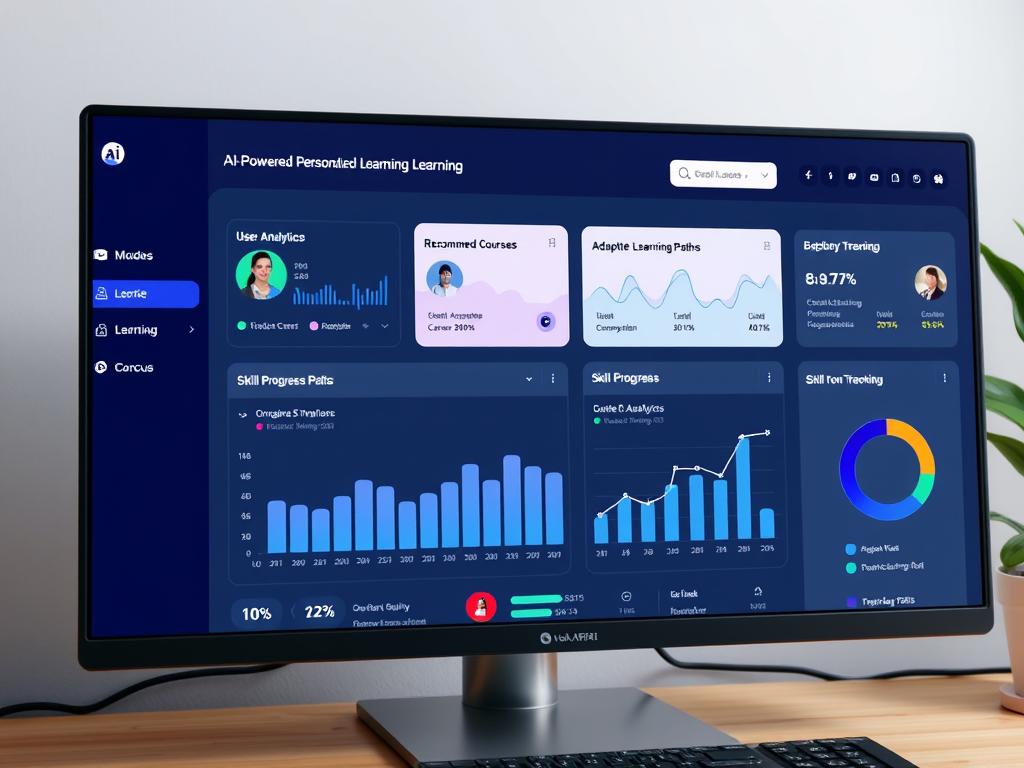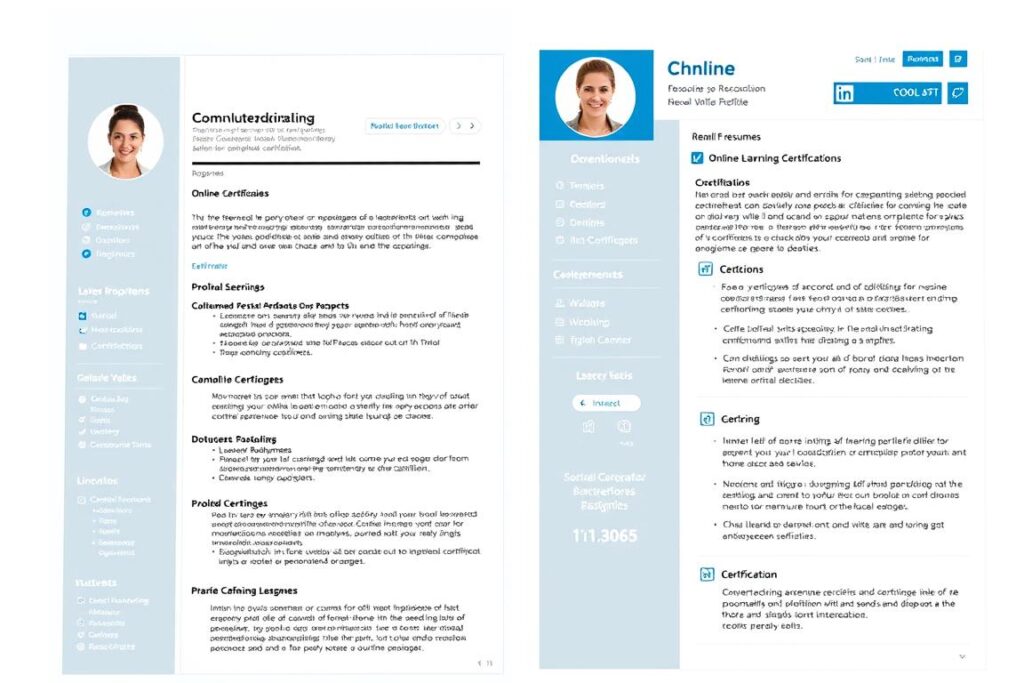
How Online Learning Transforms Career Skill Development: A Modern Guide
The professional landscape is evolving at an unprecedented pace, with new technologies and methodologies reshaping industries almost overnight. In this dynamic environment, continuous learning has become essential for career growth and sustainability. Online learning platforms have emerged as powerful tools for career skill development, offering accessible, flexible, and targeted educational opportunities that traditional learning environments often can’t match.
Whether you’re looking to advance in your current role, pivot to a new career path, or simply stay competitive in your field, online learning provides the resources you need to thrive. This guide explores how digital education is transforming professional development and offers practical insights on leveraging these platforms for your career success.
6 Key Benefits of Online Learning for Career Development
The rise of online learning has democratized education, making professional development more accessible than ever before. Here are six compelling reasons to embrace digital learning for your career advancement:
Flexibility That Fits Your Life
One of the most significant advantages of online learning is the flexibility it offers. Unlike traditional classroom settings with rigid schedules, online courses allow you to learn at your own pace and on your own schedule. This flexibility is particularly valuable for working professionals who need to balance career development with existing job responsibilities and personal commitments.
According to recent studies, over 77% of professionals cite schedule flexibility as the primary reason they choose online learning over traditional options. Whether you’re an early bird who learns best at dawn or a night owl who concentrates better after hours, online platforms accommodate your natural rhythms and life circumstances.
Cost-Effectiveness That Preserves Your Budget
Online learning typically requires significantly less financial investment than traditional education. Without the overhead costs of physical classrooms and facilities, digital courses can offer quality education at a fraction of the price. Additionally, you’ll save on commuting expenses, relocation costs, and often textbooks, as many online courses provide digital materials as part of the package.
Many platforms also offer tiered pricing models, free trials, or even completely free courses, allowing you to sample content before committing financially. This accessibility has opened doors for career advancement to those who might otherwise find traditional educational paths financially prohibitive.

Diverse Course Offerings for Any Career Path
The breadth of available online courses is truly remarkable. From technical skills like coding and data analysis to soft skills like leadership and communication, online platforms offer learning opportunities for virtually every career path and industry. This diversity allows you to customize your learning journey to your specific professional goals.
Whether you need to master a specific software, understand industry regulations, or develop management capabilities, there’s likely an online course designed precisely for that purpose. This targeted approach to skill development ensures you’re investing time in learning exactly what you need to advance.
Industry-Relevant Certifications That Employers Recognize
Many online learning platforms partner with industry leaders and educational institutions to offer certifications that carry weight with employers. These credentials demonstrate your expertise and commitment to professional growth in a tangible, verifiable way.
Platforms like Coursera partner with top universities and companies to offer courses that culminate in recognized certificates. Similarly, industry-specific platforms provide specialized certifications that directly address skill gaps employers are actively looking to fill. These credentials can significantly enhance your resume and provide talking points during interviews or performance reviews.

Networking Opportunities Beyond Geographical Limitations
While traditional networking often depends on geographical proximity, online learning environments connect you with professionals from around the globe. Many platforms include discussion forums, group projects, and peer review components that facilitate meaningful professional connections.
These diverse connections expose you to different perspectives, approaches, and opportunities that might not be available in your local area. Fellow learners may become collaborators, mentors, or even future employers as you progress in your career journey.
Self-Paced Learning That Respects Your Learning Style
Everyone learns differently, and online education acknowledges this reality. Self-paced courses allow you to move quickly through familiar material while spending more time on challenging concepts. This personalized approach optimizes your learning efficiency and effectiveness.
Additionally, many platforms offer content in various formats—video lectures, interactive exercises, written materials, and practical projects—to accommodate different learning preferences. This multi-modal approach ensures the material is accessible regardless of how you learn best.
How Online Learning Platforms Empower Career Growth
The technology behind online learning continues to evolve, creating increasingly effective educational experiences. Here’s how today’s platforms are specifically designed to enhance career development:

Bridging Critical Skill Gaps
The modern job market moves quickly, creating skill gaps as new technologies and methodologies emerge. Online learning platforms excel at identifying these gaps and developing targeted content to address them. By analyzing industry trends and employer needs, these platforms can offer courses that directly align with market demands.
For learners, this means access to the most relevant, up-to-date skills training available. Rather than spending years in traditional education only to find your skills outdated upon graduation, online platforms allow you to continuously refresh your capabilities to match current industry requirements.
Microlearning: Bite-Sized Progress
Many online platforms have embraced microlearning—breaking complex topics into short, focused segments that can be completed in minutes rather than hours. This approach is particularly effective for busy professionals who can’t dedicate large blocks of time to learning.
These bite-sized lessons make it possible to progress consistently, even with a packed schedule. You might complete a lesson during your lunch break, while commuting, or in the evening after work. Over time, these small learning moments accumulate into significant skill development.

AI-Driven Personalization
Artificial intelligence is revolutionizing online education by creating truly personalized learning experiences. AI algorithms analyze your learning patterns, strengths, weaknesses, and goals to customize content delivery and recommend relevant courses.
This personalization extends beyond content recommendations to adaptive learning paths that adjust in real-time based on your performance. If you’re struggling with a concept, the system might provide additional examples or alternative explanations. If you’re excelling, it might accelerate your progress or introduce more challenging material.
Employer Recognition of Digital Credentials
As online learning has matured, employer acceptance of digital credentials has grown significantly. Many companies now actively seek candidates with specific online certifications, recognizing them as indicators of relevant, current skills.
Some platforms have enhanced credential verification through blockchain technology, creating tamper-proof records of your educational achievements. Others partner directly with employers to develop courses that address specific organizational needs, creating a direct pipeline from education to employment.
Practical Tips for Maximizing Online Learning Success
With countless courses available, it’s important to approach online learning strategically. Here are practical tips to help you select the right courses and maximize their impact on your career:

Selecting the Right Courses for Your Career Path
Begin with a clear assessment of your career goals and the skills required to achieve them. Research job descriptions for positions you aspire to and identify recurring skill requirements. This analysis will help you prioritize learning opportunities that directly support your professional objectives.
Consider both technical and soft skills in your selection process. While technical capabilities might seem more immediately relevant, employers consistently rank soft skills like communication, problem-solving, and adaptability among their most valued attributes in candidates.
Questions to Ask When Selecting Courses:
- Does this course address a specific skill gap in my current role?
- Will this certification be recognized in my industry?
- Is the content up-to-date with current industry standards?
- Does the learning format match my preferred learning style?
- What do reviews from past participants indicate about quality?
Red Flags to Watch For:
- Outdated content that doesn’t reflect current practices
- Lack of interactive elements or practical applications
- Absence of instructor credentials or expertise
- No clear learning objectives or outcomes
- Poor reviews regarding content quality or support
Balancing Learning with Work Responsibilities
Successful online learning requires intentional time management. Rather than trying to find time for learning, schedule it as you would any other important commitment. Even short, consistent sessions are more effective than occasional marathon study sessions.

Consider discussing your learning goals with your employer. Many organizations support professional development and may provide accommodations such as adjusted schedules or even financial assistance for relevant courses. Some employers even incorporate learning objectives into performance reviews, creating additional incentives for skill development.
Showcasing Your Online Learning on Resumes and Profiles
Strategically highlighting your online credentials can significantly enhance your professional profile. On your resume, create a dedicated section for professional development or integrate relevant certifications directly into your skills section. For each credential, briefly explain how it has enhanced your capabilities or contributed to tangible results.
On LinkedIn and other professional platforms, take advantage of skills endorsements, certification sections, and the ability to link directly to digital credentials. Many platforms now offer badges or certificates that can be displayed on your profile, providing instant verification of your achievements.

When discussing your online learning in interviews, focus on specific skills acquired and how you’ve applied them in real-world situations. Prepare concrete examples that demonstrate how your learning has translated into professional value, whether through increased efficiency, problem-solving, or innovation.
How Does Online Learning Integrate AI to Enhance Career Skill Development?
Online learning platforms are increasingly leveraging AI to offer personalized experiences, tailoring courses to individual needs. By analyzing user data, these systems recommend relevant skills and resources, making navigating career growth in a digital landscape more efficient. This innovative approach empowers learners to acquire essential skills faster and with greater precision.
Ready to Transform Your Career Through Online Learning?
Explore curated online learning opportunities that align with your career goals. From industry-recognized certifications to specialized skill development, find the resources you need to advance professionally.
Discover Online Learning PlatformsThe Future of Career Development Through Online Learning
As technology continues to evolve, the integration of online learning into career development will only deepen. Emerging technologies like virtual reality are creating immersive learning environments that simulate real-world scenarios, while AI-driven platforms are becoming increasingly sophisticated in personalizing educational experiences.

The boundaries between formal education, professional development, and workplace learning are blurring, creating a continuous learning ecosystem that supports career growth throughout your professional journey. Organizations are increasingly recognizing the value of this ecosystem, integrating learning platforms into their operational workflows and talent development strategies.
By embracing online learning now, you’re not just acquiring skills for today’s workplace—you’re developing the learning agility that will serve you throughout your career. In a world where change is the only constant, the ability to continuously learn, adapt, and grow may be the most valuable skill of all.
Take the first step today by exploring the online learning platforms mentioned in this guide. Your future career success may be just a course away.